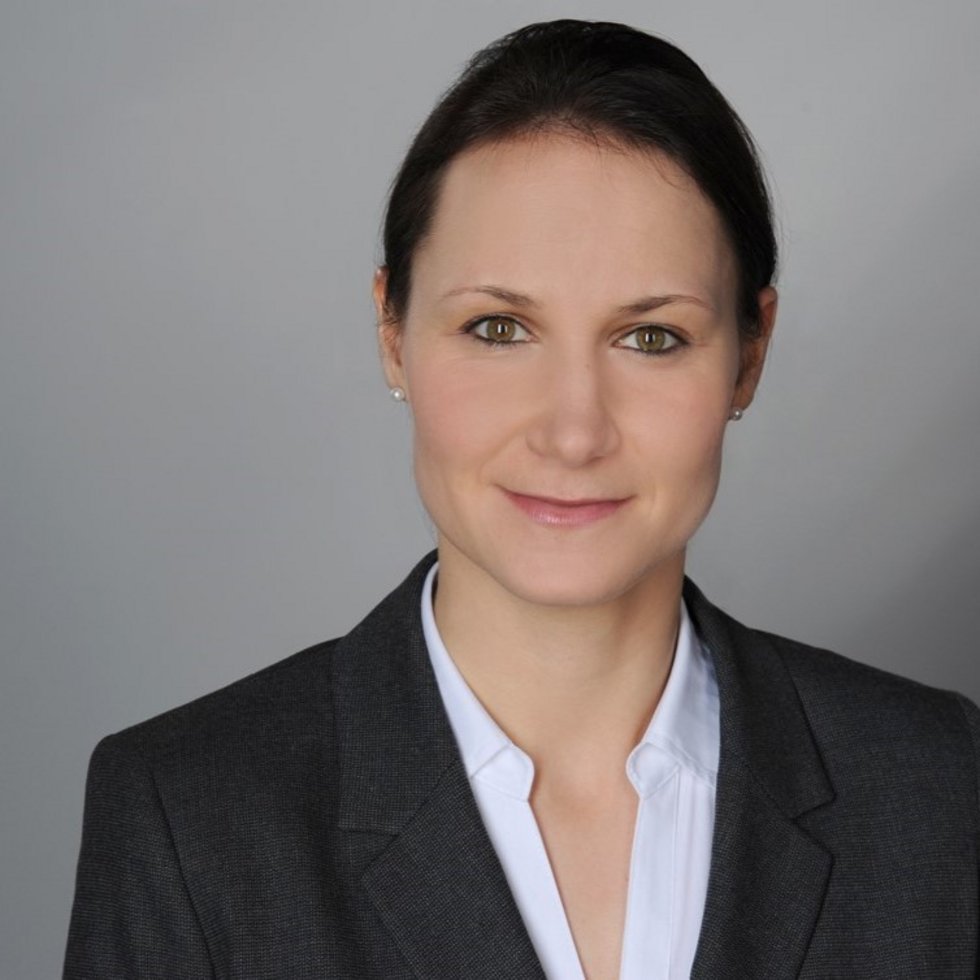Professor Dr. Dirk Jäger
Managing Director, NCT Heidelberg
Responsible for the entire clinical area at the National Center for Tumor Diseases (NCT) Heidelberg
Medical Director: Dept. of Medical Oncology, UKHD
Phone: +49 6221 56-7229
Fax: +49 6221 56-7225
E-mail: dirk.jaeger(at)med.uni-heidelberg.de
Since July 1, 2005 Professor Dirk Jäger has been heading the Department of Medical Oncology at the NCT Heidelberg and he is responsible for the entire clinical area at the NCT Heidelberg.
All oncological units at the University Hospital are integrated into the interdisciplinary outpatients' structure at the NCT Heidelberg. An important focus is translation of innovative therapeutic approaches into early clinical trials. The strategies that use the human immune system for the treatment of tumors play an important part.
since 01.07.2005
Chair, Medical Oncology, National Center for Tumor Diseases (NCT) Heidelberg, Heidelberg University Hospital
since 2013
Head of a research unit at DKFZ: Applied Tumor Immunity
2003–2005
Attending physician (Leitender Arzt) at the Department of Oncology, University Hospital Zurich (A. Knuth)
2000–2003
Attending physician at the Department of Hematology/Oncology, Krankenhaus Nordwest, Frankfurt (A. Knuth)
2003
Specialty in Hematology/Oncology
2003
Habilitation in Internal Medicine, Johannes Gutenberg University Mainz
1998–2000
Research fellowship at the Department of Pathology, Cornell Medical Center, New York, and the Ludwig Institute, New York Branch (L.J. Old, Y.T. Chen), funded by the Cancer Research Institute, New York
Topic: `Identification and characterization of novel tumor antigens in breast cancer and melanoma´
1998
Specialty in Internal Medicine
1995–1998
Attending physician at the Department of Hematology/Oncology, Krankenhaus Nordwest, Frankfurt (A. Knuth)
1993 - 1995
Resident at the Department of Internal Medicine
St. Josefs Hospital, Berlin (Prof. Dr. T. Poralla)
1992 - 1993
Resident at the Department of Internal Medicine, Gastroenterology, Oncology at the University Hospital Regensburg (J. Schölmerich)
Since 2007
Official Affiliation with the Ludwig Institute for Cancer Research (LICR)
2006
Investigator Award, Cancer Research Institute, New York
Since 2006
Member of the Cancer Vaccine Collaborative, Cancer Research Institutes, New York
Since 2005
Head of the Tumor Immunology Program at NCT
Head of the Immunotherapy Program at NCT
Head of the Clinical Research Program at NCT
2003-2005
PI of the Laboratory for Tumor Immunology at the Oncology Department, University Hospital Zurich
2001- 2003
PI of the Research Group '"Tumor antigen identification and characterization" at the Department of Hematology/Oncology, Krankenhaus Nordwest, Frankfurt
1998 – 2000
Research fellowship of the Cancer Research Institute, New York at the Department of Pathology, Cornell Medical Center, New York, and the Ludwig Institute, New York Branch (L.J. Old, Y.T. Chen), "Identification and characterization of novel target antigens in breast cancer and melanoma"
1991
Doctoral thesis: "Das Phänomen der Translokation von Bakterien und Bakterienprodukten nach Koloskopien" (The phenomenon of bacterial translocation following colonoscopy), Albert-Ludwigs-University Freiburg, Head: Prof. Dr. med. E. A. Farthmann
1991
III. Medical preliminary examination ("III. Ärztliche Prüfung"), Albert-Ludwigs-University Freiburg
1985 - 1987
Pre-clinic ("Vorklinik") and medical preliminary examination ("Ärztliche Vorprüfung"), Medical University Lübeck
1987 - 1988
Clinical studies and I. medical preliminary examination ("I. Ärztliche Prüfung"), Medical University Lübeck
1988 - 1990
Clinical studies and II. medical preliminary examination ("II. Ärztliche Prüfung"), Albert-Ludwigs-University Freiburg
1990 - 1991
Final year training ("Praktisches Jahr"), Karlsruhe Municipal Hospital ("Städtisches Klinikum"), Karlsruhe
1985 - 1991
Medical studies, Lübeck and Freiburg
1970 - 1983
Carlo Mierendorff Schule and Rabanus Maurus Gymnasium, Mainz

Secretariat, Medical Oncology
Phone: +49 6221 56-7229
Fax: +496221 56-7225
birgit.eberle(at)nct-heidelberg.de

Scientific Coordinator
Medical Oncology
Phone: +49 6221 56-34250
lea.schwessinger(at)nct-heidelberg.de
- Tumoral immune cell exploitation in colorectal cancer liver metastases can be targeted effectively by anti-CCR5 therapy in cancer patients. Halama N, Zoernig I, Berthel A, Kahlert C, Klupp F, Suarez-Carmona M, Suetterlin T, Brand K, Krauss J, Lasitschka F, Lerchl T, Luckner-Minden C, Ulrich A, Koch M, Weitz J, Schneider M, Buechler MW, Zitvogel L, Herrmann T, Benner A, Kunz C, Luecke S, Springfeld C, Grabe N, Falk CS, Jäger D. Cancer Cell 2016, 29(4):587-601.
- Prognostic Significance of Spontaneous Antibody Responses against Tumor-Associated Antigens in Malignant Melanoma Patients. Zörnig I, Halama N, Lorenzo Bermejo J, Ziegelmeier C, Dickes E, Migdoll A, Kaiser I, Waterboer T, Pawlita M, Grabe N, Ugurel S, Schadendorf D, Falk CS, Eichmueller SB, Jäger D. Int J Cancer 2015, 136:138-51.
- Anticancer immunotherapy by CTLA-4 blockade: obligatory contribution of IL-2 receptors and negative prognostic impact of soluble CD25. Hannani D, Vétizou M, Enot D, Rusakiewicz S, Chaput N, Klatzmann D, Desbois M, Jacquelot N, Vimond N, Chouaib S, Mateus C, Allison JP, Ribas A, Wolchok JD, Yuan J, Wong P, Postow M, Mackiewicz A, Mackiewicz J, Schadendorff D, Jaeger D, Zörnig I, Hassel J, Korman AJ, Bahjat K, Maio M, Calabro L, Teng MW, Smyth MJ, Eggermont A, Robert C, Kroemer G, Zitvogel L. Cell Res. 2015, 25(2):208-24.
- Overcoming drug-resistant herpes simplex virus (HSV) infection by a humanized antibody. Krawczyk A, Arndt MA, Grosse-Hovest L, Weichert W, Giebel B, Dittmer U, Hengel H, Jäger D, Schneweis KE, Eis-Hübinger AM, Roggendorf M, Krauss J. Proc Natl Acad Sci USA 2013, 110(17):6760-5.
- Low-dose irradiation programs macrophage differentiation to an iNOS⁺/M1 phenotype that orchestrates effective T cell immunotherapy. Klug F, Prakash H, Huber PE, Seibel T, Bender N, Halama N, Pfirschke C, Voss RH, Timke C, Umansky L, Klapproth K, Schäkel K, Garbi N, Jäger D, Weitz J, Schmitz-Winnenthal H, Hämmerling GJ, Beckhove P. Cancer Cell 2013, 24(5):589-602.








